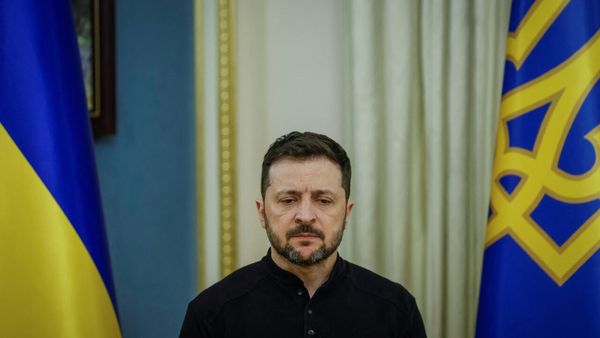
Queensland's "confronting" history has been examined at the state's truth-telling and healing inquiry., with government representatives acknowledging past policies, practices and the hurt they have caused to Aboriginal and Torres Strait Islander peoples
Directors-general of seven Queensland government departments and the state's police commissioner, Steve Gollschewski faced a truth-telling session on Tuesday in Brisbane.
Hearings for the three-year inquiry began on Wednesday, with the lived experiences and stories of Aboriginal Elders detailing life on missions, dispossession of lands, stolen wages, Stolen Generations, exploitation and abuse.
Speaking to the media following his evidence to the inquiry, Mr Gollschewski said Queensland Police are going through their records to piece together the organisation's history.
"It's pretty confronting some of the stuff that went on," he said.
"What I think it really confronting for us too is to remember they were acting out policies that were set by the governments of the day who believed, for whatever reason, that they were doing something that was in the interest of the state."

Director-general of the Department of Treaty, Aboriginal and Torres Strait Islander Partnerships, Communities and the Arts, Clare O'Connor spoke about one such confronting past practice- the native mounted police.
Queensland's native mounted police operated for more than 50 years, consisting of Aboriginal troopers led by non-Indigenous officers.
It was notorious for the violence it inflicted against Indigenous people, and while Ms O'Connor said there is no way of knowing exact numbers, it is estimated the native police killed thousands of people.
"Commanders of the native police deliberately sought to terrify and intimidate Indigenous people," she said.
"If Aboriginal people resisted being moved on, if they initiated violence against settlers or return violence then reprisals were extremely violent and disproportionate."
Inquiry chair Joshua Creamer said the "theme" of the hearing seemed to be admitting the failures of governments since colonisation in Queensland, with each department acknowledging past wrongs.
"It really sounds as though government departments, the seven representatives there today were really admitting to 160 years of failures in terms of their delivery of service and interaction with the Aboriginal and Torres Strait Islander community," the Waanyi and Kalkadoon man said.
Mr Creamer said the departments have been working towards "reframing the relationship" with Indigenous communities.
"The willingness to participate and support the inquiry really goes along to the basis that those departments, or those representatives, really see value in the inquiry and how it will shape the relationship with the community and government going forward," he said.
Mr Creamer said the inquiry hopes to hold a number of truth-telling sessions before the end of the year, focused on lived experience, calling on experts and visiting communities around the state.







